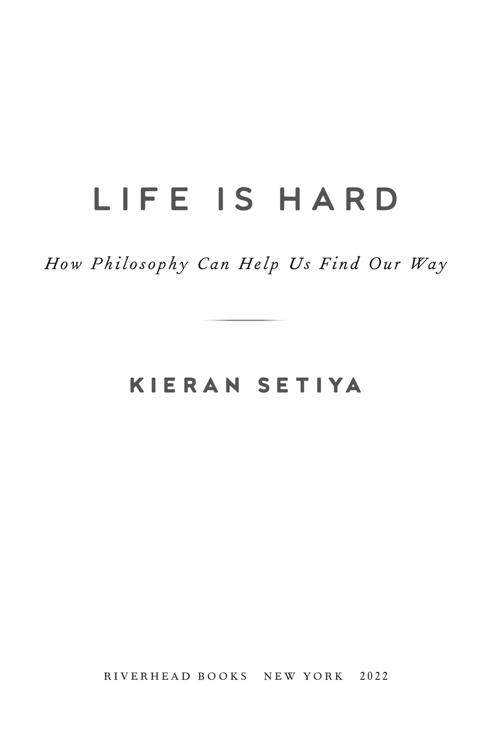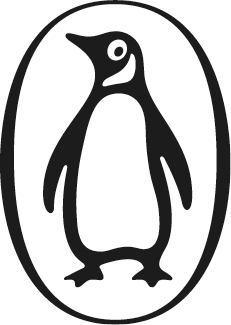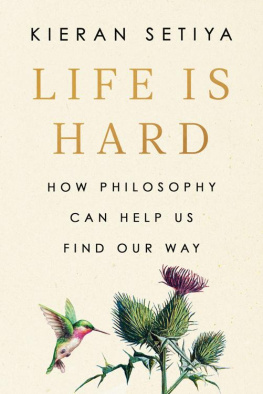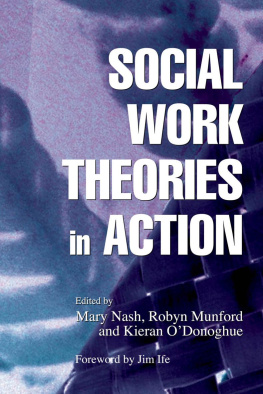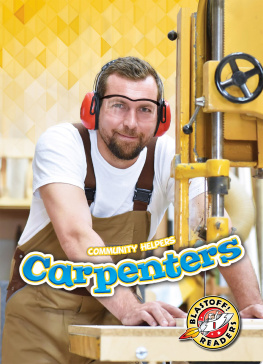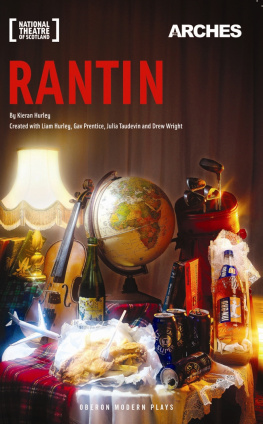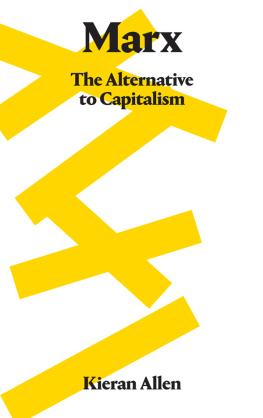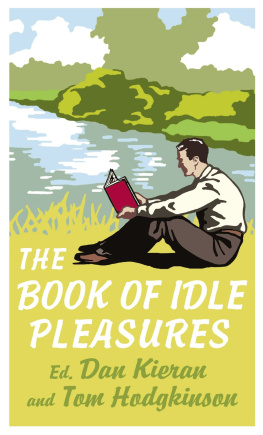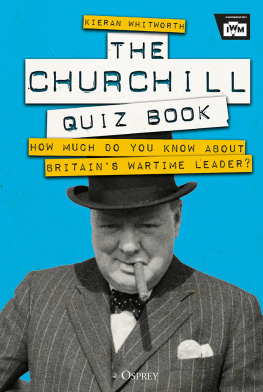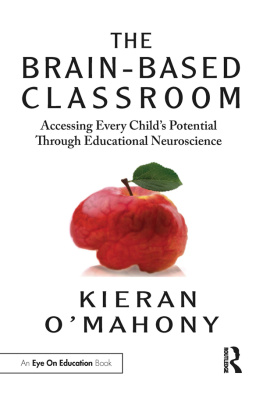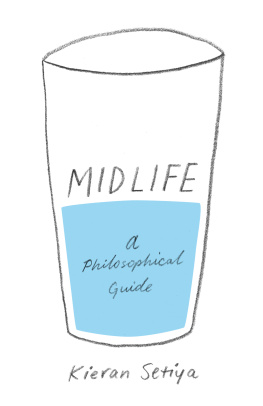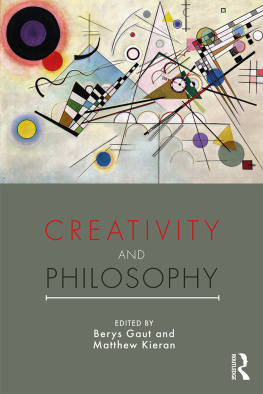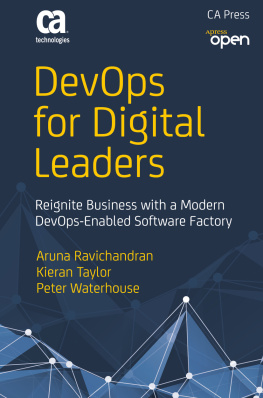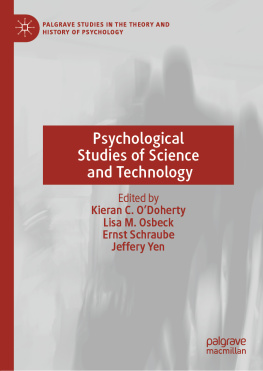Also by Kieran Setiya
Midlife: A Philosophical Guide
Riverhead Books
An imprint of Penguin Random House LLC
penguinrandomhouse.com
Copyright 2022 by Kieran Setiya
Penguin Random House supports copyright. Copyright fuels creativity, encourages diverse voices, promotes free speech, and creates a vibrant culture. Thank you for buying an authorized edition of this book and for complying with copyright laws by not reproducing, scanning, or distributing any part of it in any form without permission. You are supporting writers and allowing Penguin Random House to continue to publish books for every reader.
Riverhead and the R colophon are registered trademarks of Penguin Random House LLC.
library of congress cataloging-in-publication data
Names: Setiya, Kieran, 1976 author.
Title: Life is hard : how philosophy can help us find our way / Kieran Setiya.
Description: New York : Riverhead Books, 2022. | Includes bibliographical references and index.
Identifiers: LCCN 2022008948 (print) | LCCN 2022008949 (ebook) | ISBN 9780593538210 (hardcover) | ISBN 9780593538234 (ebook)
Subjects: LCSH: Suffering. | Hope. | Conduct of life.
Classification: LCC B105.S79 S48 2022 (print) | LCC B105.S79 (ebook) | DDC 128/.4dc23/eng/20220512
LC record available at https://lccn.loc.gov/2022008948
LC ebook record available at https://lccn.loc.gov/2022008949
Cover images: (bird) Wacomka / iStock / Getty Images Plus; (plant) Duncan1890 / DigitalVision Vectors / Getty Images
Book design by Alexis Farabaugh, adapted for ebook by Maggie Hunt
pid_prh_6.0_141446089_c0_r0
You remind me of someone who is looking through a closed window and cannot explain to himself the strange movements of a passerby. He doesnt know what storm is raging out there or that this person might only with difficulty be keeping himself on his feet.
ludwig wittgenstein
CONTENTS
ONE
Infirmity
TWO
Loneliness
THREE
Grief
FOUR
Failure
FIVE
Injustice
SIX
Absurdity
SEVEN
Hope
Preface
This book was conceived before the Covid-19 pandemic. It was written in a fugue of concentration over eighteen months, starting in the summer of 2020, as the world fell apart around me. Im a philosopher who writes about the question of how to live, and the trials of life had never seemed more urgent. I wanted to acknowledge them.
My relationship with adversity has altered as Ive aged. Hardships hit closer to home these days, in my own life and the lives of people I love. Bereavement, cancer, chronic pain: they change the way you see the world. When I was younger, I was more oblivious. I needed the reminder in my epigrapha remark by the philosopher Ludwig Wittgenstein to his sister Herminethat people often suffer in ways they dont express. Hardship is routinely hidden.
My relationship with philosophy has changed, too. As a teenager, I loved the abstract theories of metaphysicians, plumbing the basic structure of mind and world. Philosophy was, for me, an escape from ordinary life. I still admire philosophy in its more arcane forms, and Id defend those forms to anyone. A society that wont support the study of questions about reality and our place in iteven questions science cannot answeris profoundly impoverished.
But philosophy is, and can be, more than that. To study the discipline is to become an artisan of arguments, learning to dissect and reason through intractable problems. That is what I learned to do in college; it is what I have taught with conviction for many years. Yet Ive come to want a philosophy that can speak more intimately to life. When I took my qualifying exams in graduate school, the examiners report was mostly positive. But Ive forgotten all the nice things it contained. What I remember is a critical phrase: my ideas, the examiners warned, had not been tested in the crucible of direct moral experience. My friends and I made fun of that remark. But it stayed with me. The point was less that experience disproved my nascent theories than that those theories were too distant from it.
What would a philosophy look like that was tested in the crucible of direct moral experience? Its an intimidating question. No ones experience is broad or deep enough to stand for everyones. Our perspective is always limited, with its unique distortions and blind spots. But there could be a philosophy that speaks from ones own life, even as it draws on arguments and thought experiments, philosophical theories and distinctions. It would blur the lines between the argumentative and the personal essay, between the discipline of philosophy and the lived experience of someone who finds philosophy ready-to-hand, a tool with which to work through lifes adversities. It would draw us back to the original meaning of philosophythe love of wisdomand to philosophy as a way of life.
Thats the spirit with which, in troubled times, I wrote this book.
Introduction
Life, friends, is hardand we must say so. Its harder for some than it is for others. Into each life some rain must fall, but while the lucky dry themselves beside the fire, others are drenched by storms and floods, both literal and figurative. We live in the wake of a global pandemic and mass unemployment, amid the surging catastrophe of climate change and the revival of fascism. These calamities will disproportionately harm the poor, the vulnerable, and the oppressed.
My own luck has been good. I was raised in Hull, an industrial city in the northeast of England that had been through better times. My childhood had its share of troubles, but I fell in love with philosophy, made my way to Cambridge as an undergraduate, moved to the U.S. for graduate school, and stayed. Im a professor of philosophy at MIT, protected by the wealth and stability of an illustrious if eccentric institution. I have a house, a happy marriage, and a child who is wiser and braver than I ever was. I have never gone hungry or been homeless; I am not a victim of brutality or war. But no one is shielded, in the end, from sickness, loneliness, failure, grief.
Since the age of twenty-seven, I have experienced chronic pain: persistent, fluctuating, strange, a constant drone of sensory distraction. It can be difficult to concentrate and, at times, impossible to sleep. Because it is invisible, my condition is isolating: almost no one knows. (Ill tell you all about it in Chapter 1.) At thirty-five, I had a premature midlife crisis. Life seemed repetitive, empty, just more of the same: a sequence of accomplishments and failures stretching through the future to decline and death. Eight years ago, my mother was diagnosed with early-onset Alzheimers. Her memory faltered for some time, and then abruptly crashed. I am grieving for someone who is still alive.
As I look around me, I see suffering on a massive scale. When I wrote these words, millions were living in enforced isolation, lonely and desperate due to Covid-19. Many had lost their jobs or could not pay their bills. Loved ones were sick or dying; there was an epidemic of grief. Inequality was rampant and democracy fragile. Another storm is coming, as we fail to heed the fire alarm of global warming.
